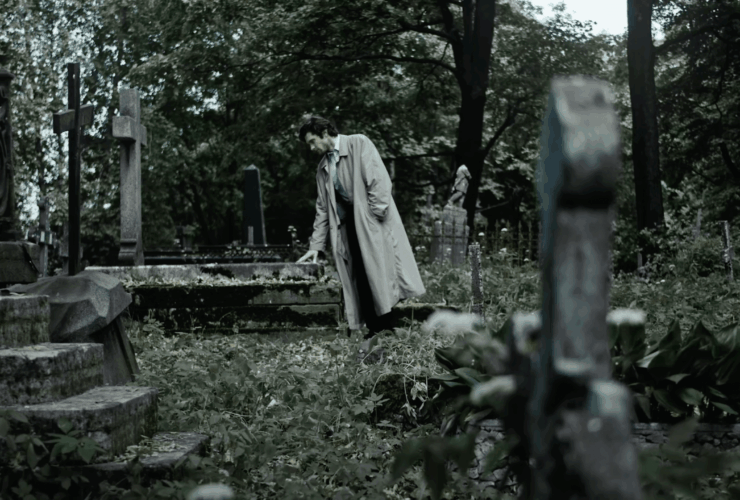After their miraculous escape from Egypt and decades of wandering in the wilderness, Israel along with her new leader Joshua had been mostly successful in their recent conquest of Canaan. And it was finally time to divide the land between the tribes of Israel. But just before the lots were cast, an 85-year-old man named Caleb approached Joshua to remind his old friend of a promise God had made to him 45 years earlier…
Israel was still fresh out of Egypt after God had given them a dramatic and decisive victory over Pharoah’s army, and they were now stationed on the border of Canaan ready to conquer the land God had promised them. In preparation they sent twelve men (one from each tribe) to spy out the land for forty days. And even though the same God who delivered them from Egypt had also promised them the victory over the Canaanites (some of whom were giants), the majority view of the spies was that Israel could not conquer them. Only two of the twelve spies had faith in God’s promise. And these two spies were none other than Caleb and Joshua. In fact, Caleb was especially bold and “dared to disagree” with the popular opinion. Unfortunately, Israel listened to the ten spies and refused to enter the land. For this God vowed that they would spend the next 40 years wandering in the wilderness (one year for each day spent spying out the land) until every adult from that generation had perished. However, “For Caleb’s leadership against the unbelieving spies and people, God singled him out for blessing and promised him a special reward (Num. 14:24; Deut. 1:36).”[1] Two promises actually, which Caleb was now reminding Joshua of all these years later. First of all, that he (along with Joshua) would be the only adult survivors from that unbelieving generation to enter the Promised Land (which, of course, happened). And second, that Caleb would inherit the very territory that he had so bravely explored all those years earlier. Namely, Hebron.[2]
Fun Fact: Caleb means “faithful dog.”
And even though that territory was still occupied by Anakites, Caleb told Joshua that “he felt as strong and vigorous at 85 as he had at 40!”[3] One Bible scholar marvels at Caleb saying, “At age 85, when he might have asked for a quiet place to spend his last days raising some vegetables or flowers, he instead requested that he be given the same section of land that had struck fear into the hearts of the 10 spies. This was the inheritance he desired in fulfillment of God’s earlier promise. Though most older people are more apt to talk about old conflicts than to take on new ones, Caleb was ready for one more good battle. He was eager to fight the [Anakite giants] at Hebron and take that city for his possession. Caleb chose a large and foreboding task. Not that he was filled with pride in his own ability. Rather he believed God would be with him. Caleb had faith in the presence of God. With flashing eyes and a strong voice he concluded, ‘The LORD helping me, I will drive them out just as He said.’ And drive them out he did, as Joshua (15:13-19) recorded.”[4]
Fun Fact: Caleb’s nephew and son-in-law Othniel (who won Caleb’s daughter by capturing Kiriath Sepher) was a judge of Israel (Judges 3:7-11).
While this is certainly exciting reading, God did not preserve this story for mere entertainment. So what is the meaning and purpose of this account? And what does it mean to us today? Well, I believe one purpose is to contrast believers with unbelievers.
- The 10 unbelieving spies, for example, magnified the problems—namely the giants and the fortified cities—and minimized God. But Caleb magnified God which minimized the problems. Similarly, when we believe God and magnify Him, the impossible problems suddenly become possible.
- Second, the 10 spies doubted that they could be victorious. But Caleb was convinced of the victory. And as noted before, it wasn’t that Caleb “was filled with pride in his own ability. Rather he believed God would be with him. Caleb had faith in the presence of God.” We too mustn’t doubt God but must have faith in His presence knowing that He is fighting our battles.
- Third, while the 10 unbelieving spies all died in the wilderness and never got to enter the Promised Land, God spared Caleb and gave him an inheritance in the land. In fact, God not only kept Caleb alive, but He even sustained his strength so that even after 45 years Caleb was still as strong and vigorous as he was at 40. Israel’s entry into the promised land is referred to in the Bible as the Lord’s rest. But as the NT book of Hebrews points out, it “was only partial because it previewed and prefigured the ultimate rest in God to come which was inaugurated through the gospel of Jesus Christ. Thankfully, God still offers us this coming rest today for anyone who believes and trusts in His redemptive work through the person of Jesus Christ.”[5]
- This story also teaches us that God’s acceptance of people has nothing to do with ethnicity, skin colour, background or where you are from. Rather, it has everything to do with faith and obedience to Him. Because notice that Caleb was a Kenizzite. And “According to Genesis 15:19 the Kenizzites were a tribe of Canaan in Abraham’s day. Caleb’s family then was originally outside the covenant and commonwealth of Israel as were [several other heroes of the faith].[6] It is apparent that the Kenizzites in part at least joined the tribe of Judah before the Exodus. So their faith was not hereditary but was the fruit of conviction. And Caleb displayed that faith throughout his long lifetime.” We too, no matter our skin colour, ethnicity, or background can become children of God if we will only repent and trust and believe in Him.
- Another important lesson we learn from this account is that the common idea that the majority opinion can’t be wrong is wrong. Just as the 10 spies were wrong, often times popular opinion is also dead wrong. For example, the majority of people do not believe or recognize Jesus Christ as the way, the truth, and the life. As Jesus Himself said, “Enter through the narrow gate. For wide is the gate and broad is the road that leads to destruction, and many enter through it. But small is the gate and narrow the road that leads to life, and only a few find it.” (Matthew 7:13-14) May we, like Caleb, not go with the crowd but instead trust in God’s perfect word in all things! No matter what people say, remember that the Bible is our ultimate fact-checker.

Ryan Hembree is a daily co-host, speaker, and writer of Bible Discovery. He also hosts a YouTube channel that shows the unity of the Bible and how science and Scripture fit together. Ryan also has an honorary Masters of Ministry in Creation Science from Phoenix University of Theology.
[1] Donald K. Campbell, The Bible Knowledge Commentary, Old Testament, John F. Walvoord and Roy B. Zuck General Editors, P.357.
[2] Ibid.
[3] Ibid.
[4] Ibid., P.357,359.
[5] Ryan Hembree, Sabbath Rest: What exactly is the Lord’s rest spoken of in Hebrews 3-4? Bible Discovery. Published on January 7, 2022.
https://biblediscoverytv.com/spotlight/2022/sabbath-rest/
[6] E.g., Heber the Kenite (Jud. 4:17), Ruth the Moabitess (Ruth 1:1-5), Uriah the Hittite (2 Sam. 11:3, 6, 24), etc.






